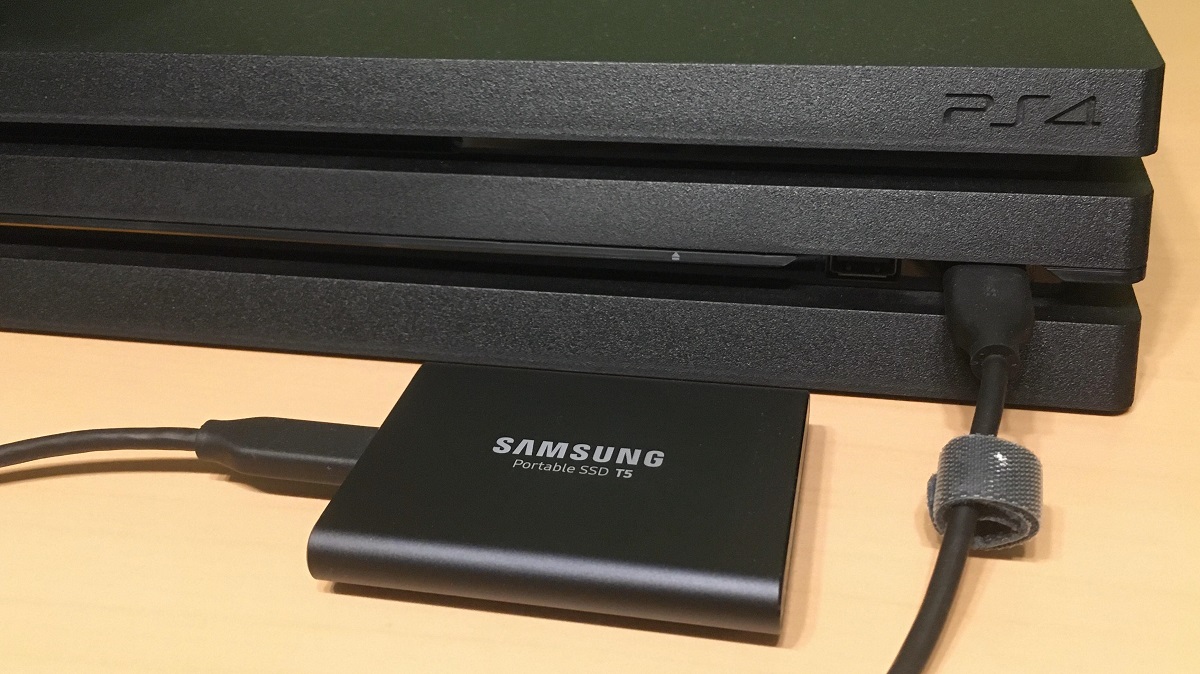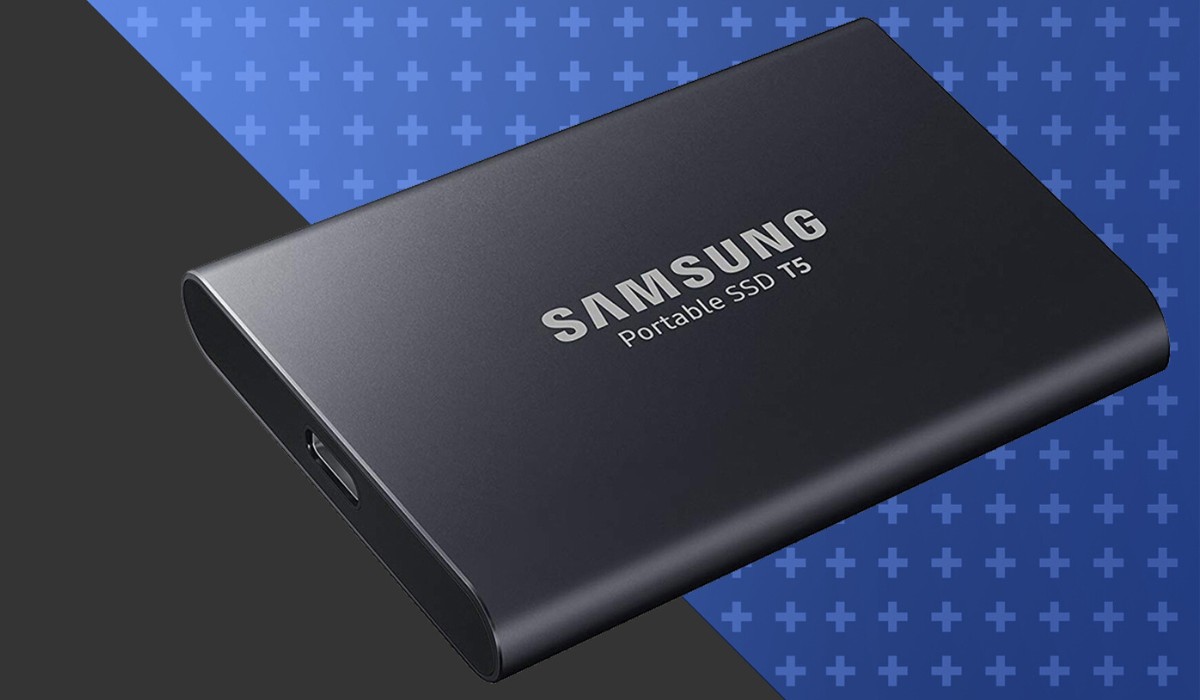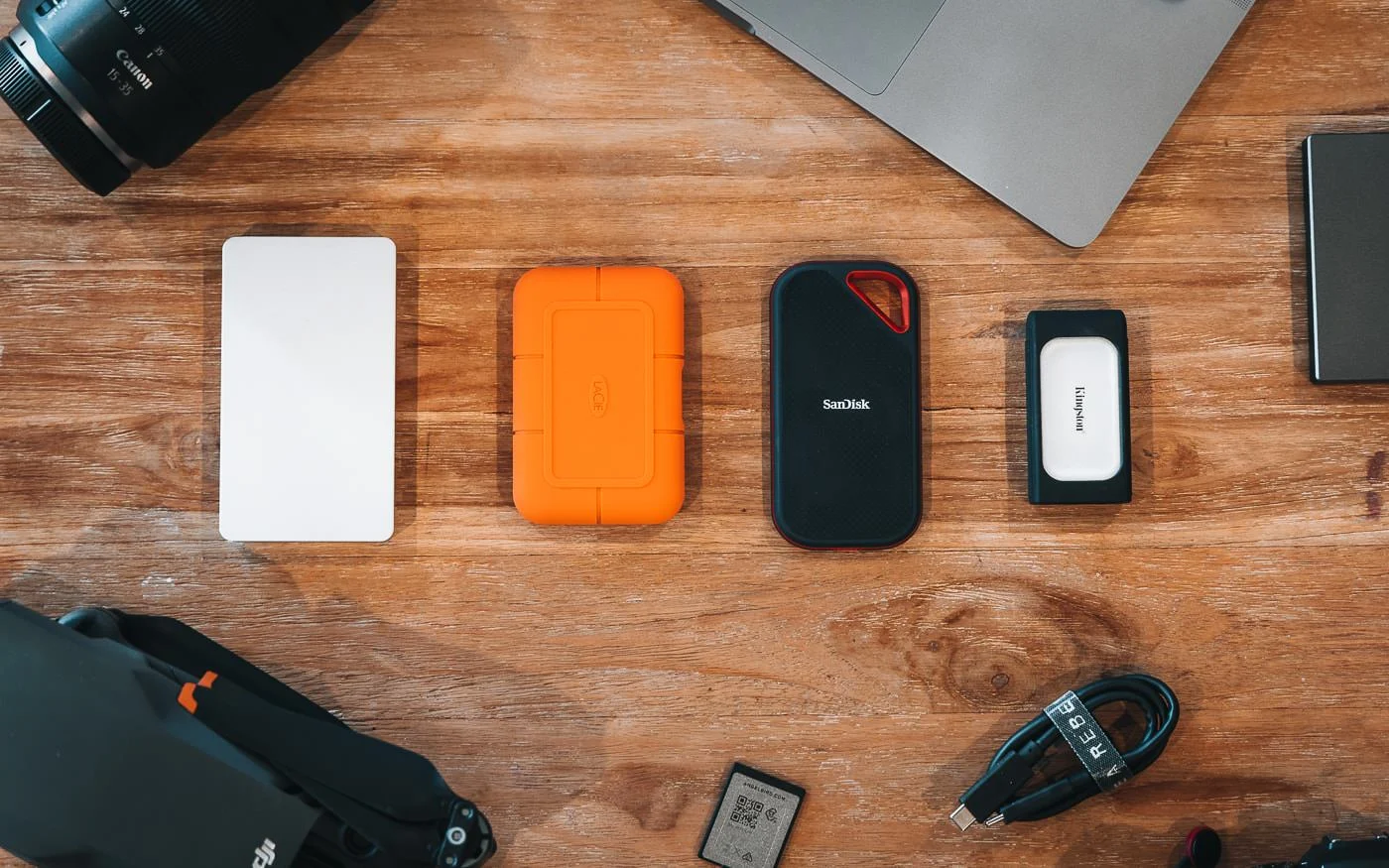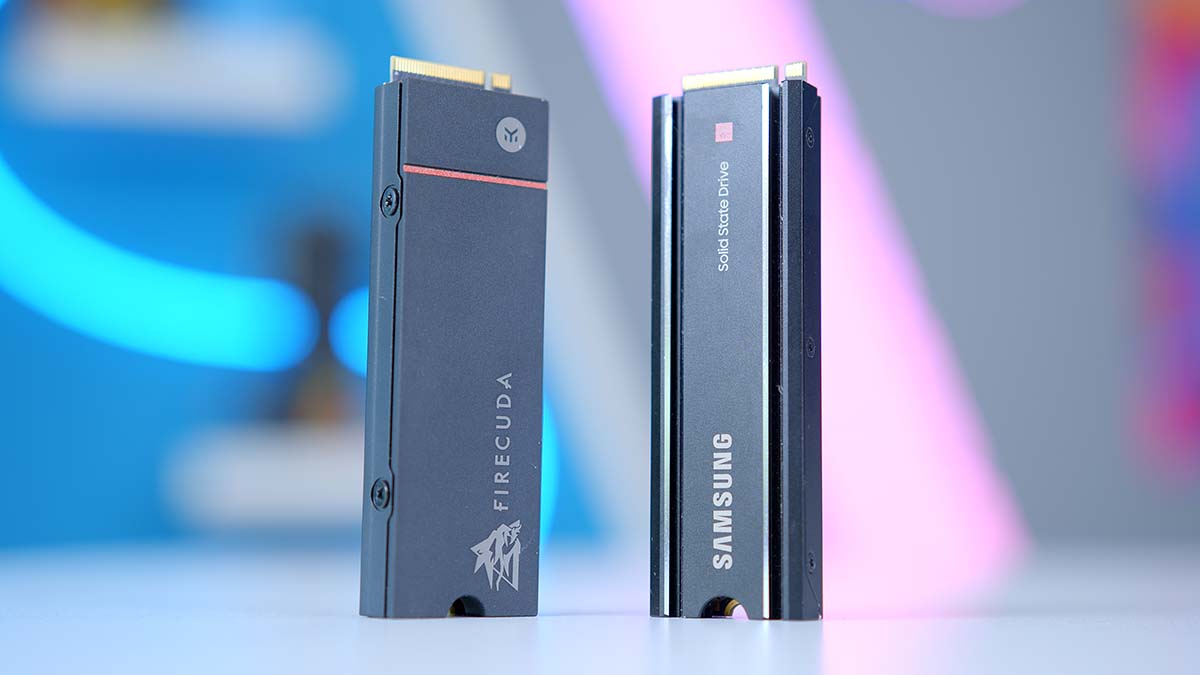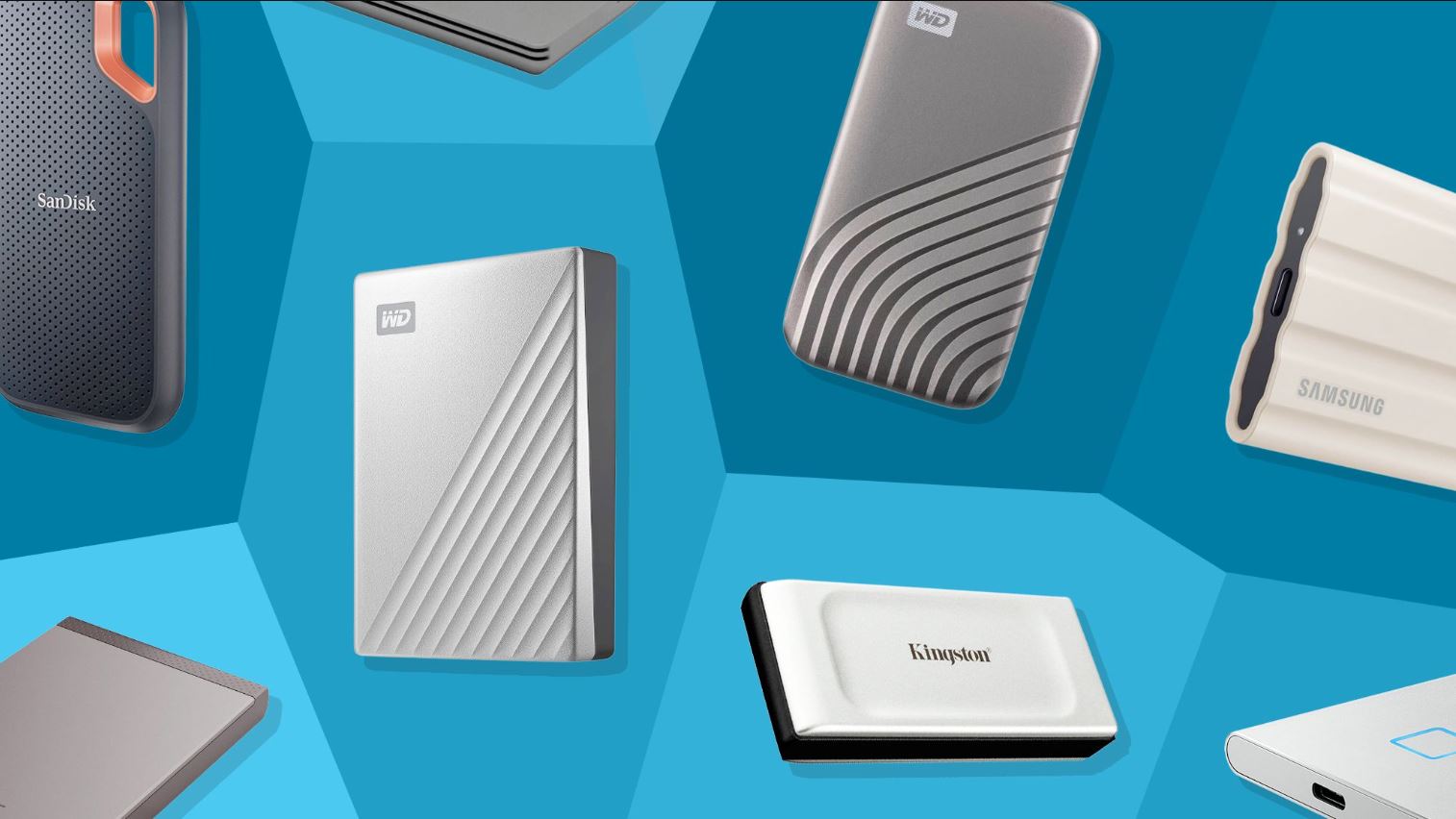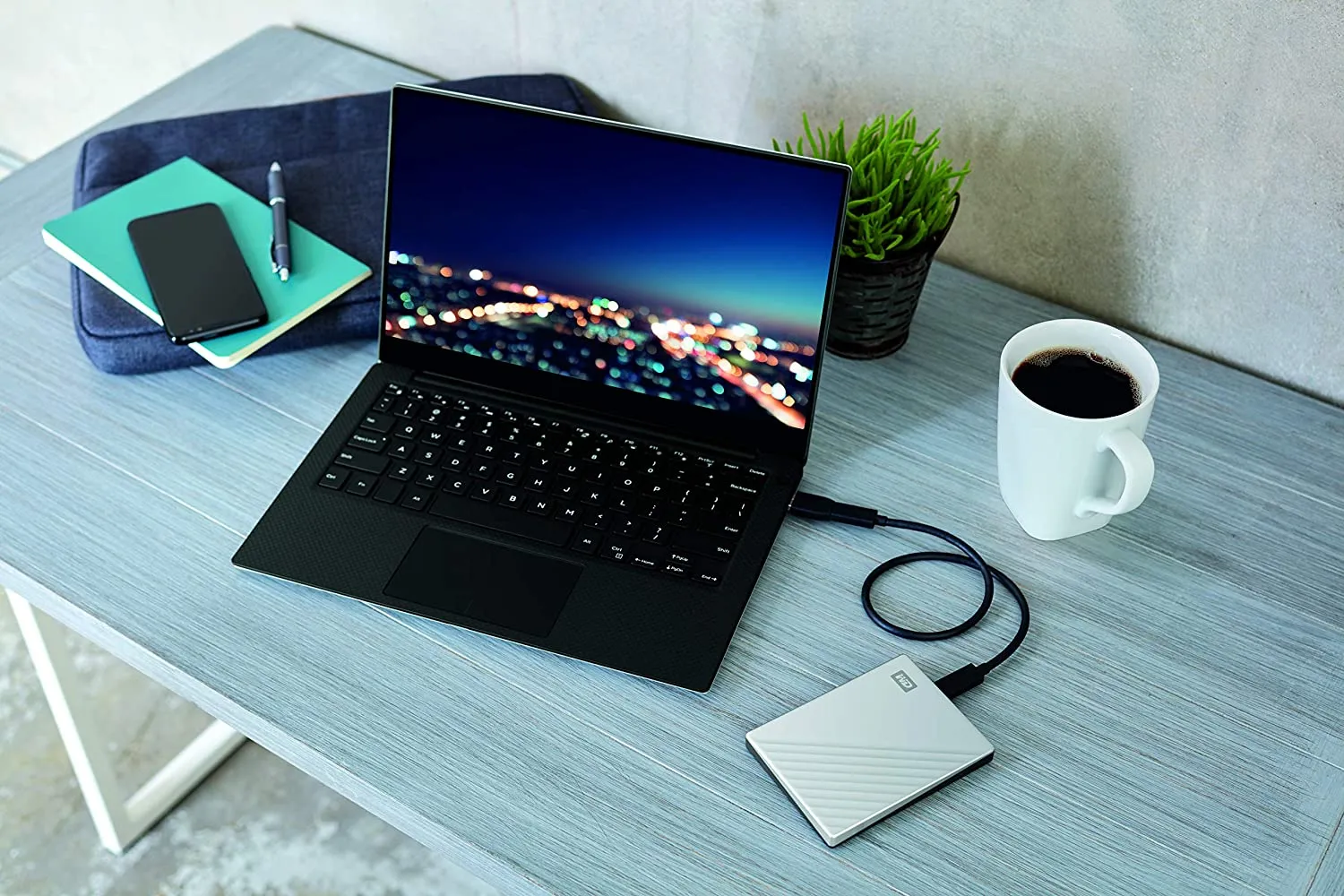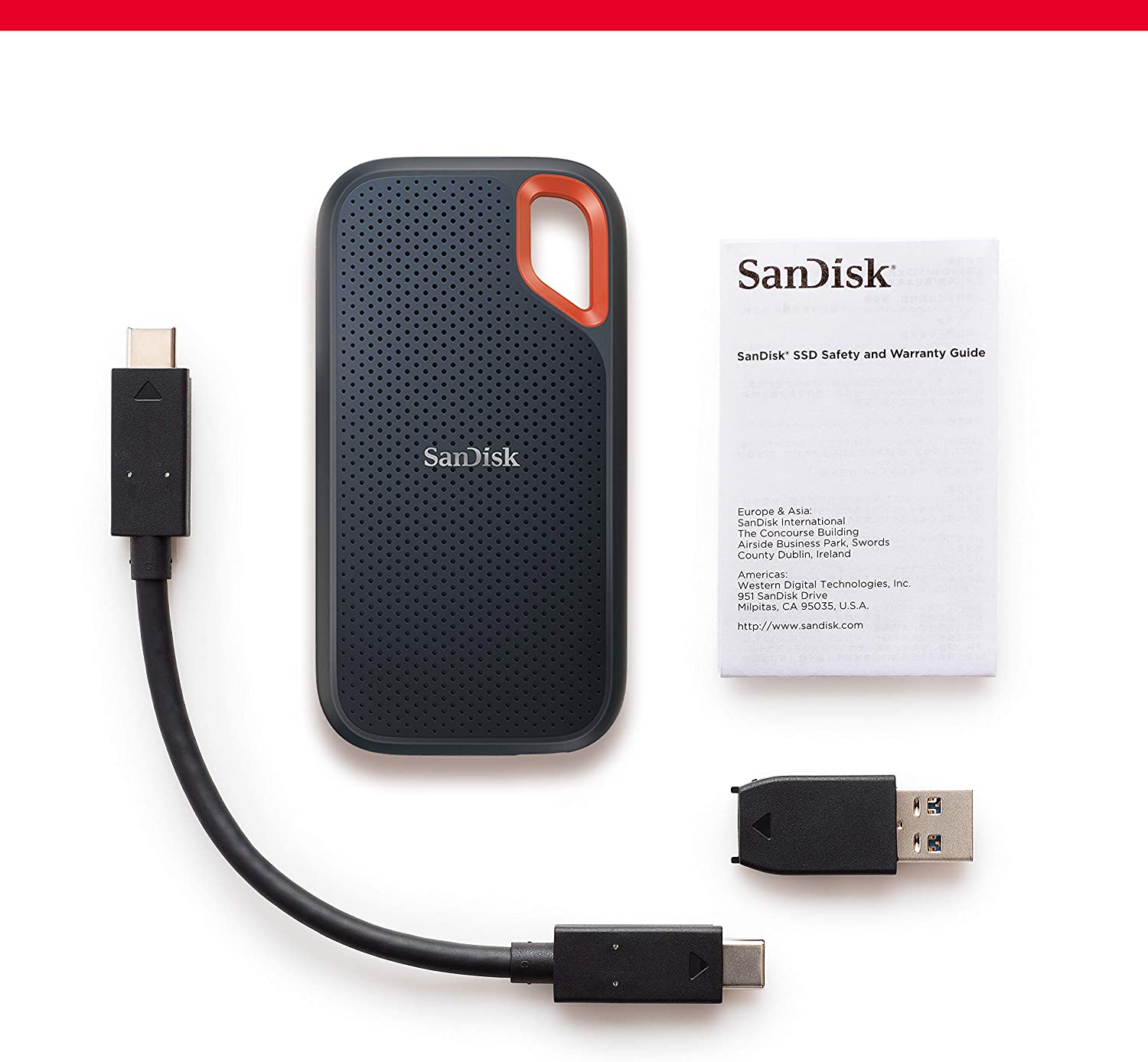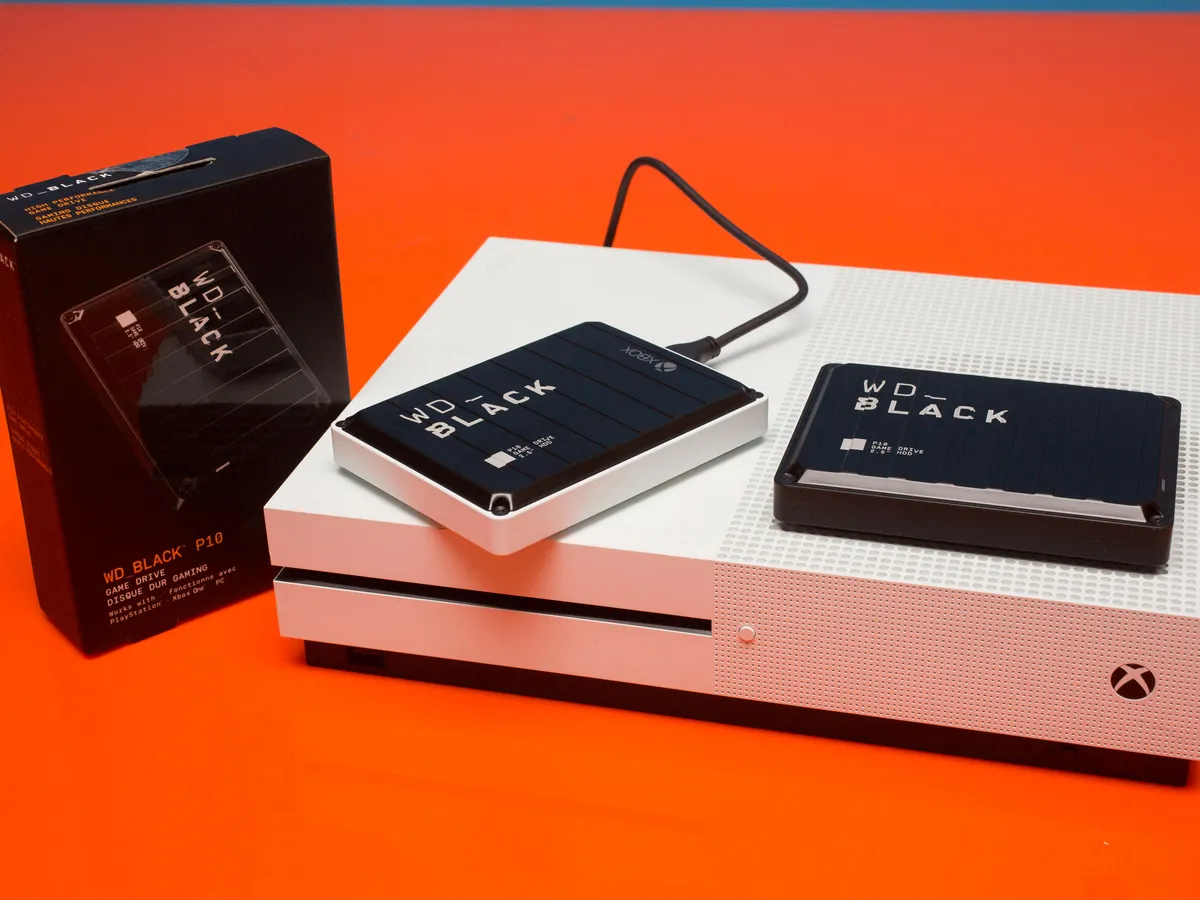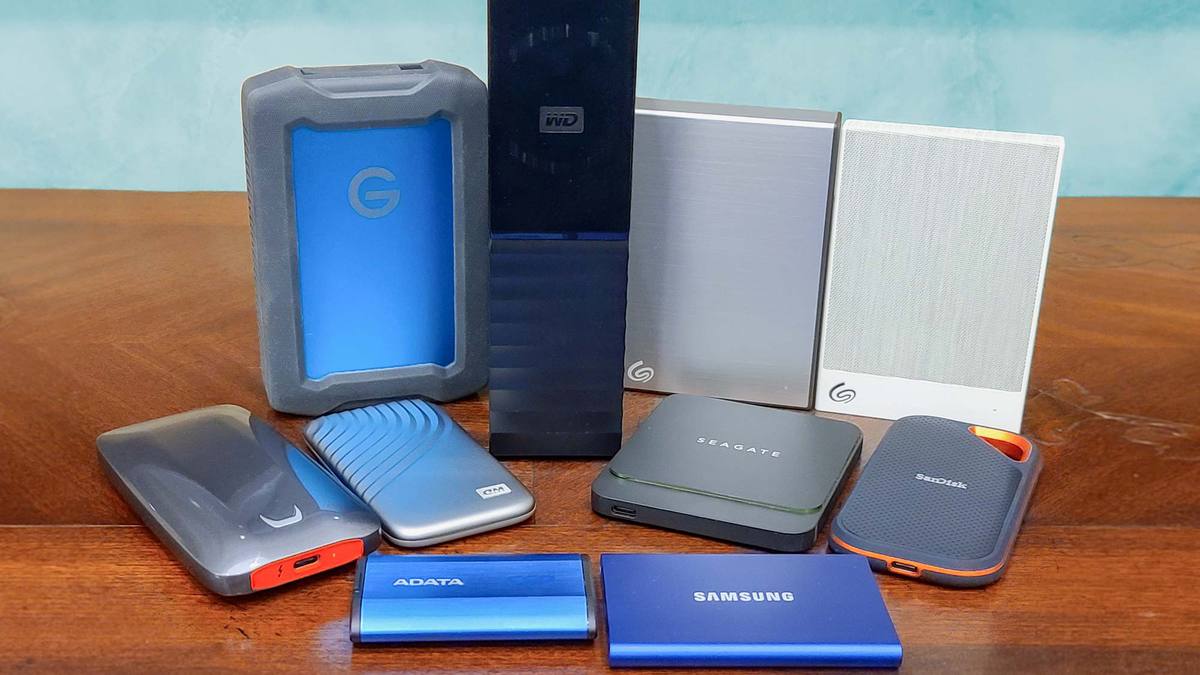Introduction
Welcome to the world of gaming! Whether you’re a casual gamer or a hardcore enthusiast, you know that having the right equipment can significantly enhance your gaming experience. One essential piece of hardware that can optimize your gaming setup is a Portable SSD (Solid State Drive) for your PS4.
For those unfamiliar with the term, a Portable SSD is a compact and lightweight storage device that uses flash memory to store data. It provides faster loading times, improved performance, and ample storage space for your games and applications. Gone are the days of waiting for long loading screens or experiencing lag during gameplay; with a Portable SSD, you can enjoy a seamless gaming experience.
Using a Portable SSD with your PS4 has numerous benefits. First and foremost, it allows you to store more games and applications. The internal storage of your PS4 might be limited, especially if you own the standard 500GB or 1TB model. By connecting a Portable SSD, you can expand your storage capacity and keep all your favorite games readily accessible.
In addition to increased storage, a Portable SSD also offers faster loading times. The high-speed nature of SSDs ensures that games and applications load quickly, reducing waiting times and providing a smoother gameplay experience. Say goodbye to those frustrating delays and hello to instant immersion.
Furthermore, using a Portable SSD can enhance the overall performance of your PS4. The faster read and write speeds of an SSD result in improved game performance, reduced input lag, and smoother frame rates. Whether you’re playing competitive online games or exploring vast open-world adventures, the difference in performance will be noticeable.
Given these significant advantages, it’s important to choose the right Portable SSD for your PS4. In the next section, we will explore the factors to consider when selecting a Portable SSD to ensure compatibility and optimal performance.
Benefits of using a Portable SSD with PS4
When it comes to gaming on your PS4, using a Portable SSD can take your experience to the next level. Here are some of the key benefits of incorporating a Portable SSD into your gaming setup:
- Faster loading times: One of the most significant advantages of using a Portable SSD is the drastic reduction in loading times. With an SSD’s high-speed read and write capabilities, games and applications load much faster, eliminating those frustrating waiting periods and allowing you to jump right into the action.
- Improved performance: The performance of your PS4 will be significantly enhanced when you connect a Portable SSD. The faster read and write speeds of an SSD mean smoother gameplay, reduced input lag, and improved overall performance. Whether you’re engaging in fast-paced multiplayer battles or exploring graphically intensive worlds, an SSD ensures a seamless and enjoyable gaming experience.
- Expanded storage capacity: The internal storage of your PS4 might not be sufficient to hold all your games and applications. By using a Portable SSD, you can easily expand your storage capacity and have more room for your growing game library. This allows you to keep all your favorite titles readily available without the need for constant uninstalling and reinstalling.
- Portability: As the name suggests, Portable SSDs are compact and lightweight, making them convenient to carry around. Whether you’re going to a friend’s house for a gaming session or participating in a gaming tournament, you can easily bring your games and applications with you on your Portable SSD. No more worrying about leaving your favorite titles behind!
- Durability: Unlike traditional hard disk drives (HDDs), which have moving parts that are susceptible to damage, Portable SSDs are built to withstand rugged conditions. They are shock-resistant, meaning accidental bumps or drops are less likely to cause data corruption or loss. This durability ensures that your game data remains safe and intact.
- Ease of use: Setting up a Portable SSD with your PS4 is a straightforward process. It involves simple plug-and-play functionality, eliminating the need for complex configurations or installations. You can start enjoying the benefits of an SSD right away, without any hassle.
By utilizing a Portable SSD with your PS4, you can significantly enhance your gaming experience. From faster loading times and improved performance to expanded storage capacity and portability, the benefits are undeniable. In the next section, we will delve into the process of choosing the right Portable SSD for your PS4.
Choosing the right Portable SSD for your PS4
When selecting a Portable SSD for your PS4, there are a few factors to consider to ensure compatibility and optimal performance. Here are some guidelines to help you choose the right Portable SSD:
- Storage capacity: Determine how much storage space you need for your gaming needs. Consider the size of your game library and the number of games you typically play simultaneously. Portable SSDs are available in various capacities, ranging from 250GB to 2TB or more. Choose a size that suits your requirements and allows room for future game installations.
- Interface: The interface of the Portable SSD determines its transfer speed and compatibility with your PS4. The recommended interface is USB 3.0 or higher, as it provides fast data transfer rates and is backward compatible with USB 2.0. Ensure that your PS4 has the necessary USB ports to connect the SSD effectively.
- Speed: Look for a Portable SSD with fast read and write speeds. The faster the speeds, the quicker your games and applications will load. Aim for SSDs with sequential read and write speeds of at least 400MB/s for optimal performance.
- Reliability: Consider the reliability and reputation of the SSD manufacturer. Look for brands known for their durability and quality. Reading reviews and user experiences can help you gauge the reliability of a specific model.
- Price: Set a budget for your Portable SSD purchase. Fortunately, the prices of SSDs have become more affordable over the years. Compare different models and brands to find one that offers a balance between price and performance.
- Size and weight: If portability is a priority for you, consider the physical dimensions and weight of the Portable SSD. Look for a compact and lightweight option that is easy to carry around without adding unnecessary bulk to your gaming setup.
- Warranty: Check the warranty offered by the manufacturer. A longer warranty period is indicative of the manufacturer’s confidence in their product. It also provides you with peace of mind, knowing that you are protected in case of any defects or issues.
By considering these factors, you can narrow down your options and find the perfect Portable SSD for your PS4. Remember to assess your specific needs and prioritize the features that are most important to you. In the next section, we will guide you through the step-by-step process of setting up your Portable SSD with your PS4.
Step-by-Step Guide to setting up your Portable SSD with PS4
Setting up a Portable SSD with your PS4 is a straightforward process. Follow the steps below to ensure a smooth and hassle-free setup:
- Check compatibility: Ensure that your Portable SSD is compatible with your PS4. Make sure it has the necessary interface (usually USB 3.0 or higher) and that your PS4 firmware is up to date to support external storage devices.
- Connect the Portable SSD: Plug one end of the USB cable into the USB port of your Portable SSD and the other end into an available USB port on your PS4.
- Format the Portable SSD: Once the Portable SSD is connected, go to the “Settings” menu on your PS4 and navigate to the “Devices” section. Select “USB Storage Devices” and choose your Portable SSD. Format the SSD to prepare it for use with your PS4. Note that formatting will erase all data on the SSD, so make sure to back up any important files beforehand.
- Set the Portable SSD as the default install location: After formatting, go back to the “Settings” menu, navigate to “Storage,” and select “System Storage.” Choose “Applications” and then “Options.” Set the “Install Location” for future downloads and installations as your Portable SSD. This ensures that new games and applications are automatically installed on the SSD rather than the internal storage.
- Transfer existing games and applications: If you have games and applications already installed on your PS4’s internal storage, you can transfer them to the Portable SSD to free up space. Go to the “Settings” menu, select “Storage,” and choose “System Storage.” Highlight the game or application you want to transfer, press the “Options” button, and select “Move to Extended Storage.” Follow the on-screen prompts to complete the transfer process.
- Start gaming: Once the transfer is complete, you can start gaming directly from your Portable SSD. The PS4 will automatically detect the games and applications stored on the SSD, making them accessible from the main menu.
With these simple steps, you can set up your Portable SSD with your PS4 and take advantage of its enhanced storage and performance capabilities. Enjoy faster loading times, improved gameplay, and the convenience of having all your favorite games readily available. In the next section, we will explore how to manage your games and applications on your Portable SSD.
Transferring games and applications to your Portable SSD
Once you have set up your Portable SSD with your PS4, you may want to transfer your existing games and applications from the internal storage to the SSD to free up space and utilize the benefits of faster loading times. Here’s a step-by-step guide on how to transfer games and applications to your Portable SSD:
- Go to the “Settings” menu: On your PS4, navigate to the “Settings” menu from the main menu screen.
- Select “Storage”: In the “Settings” menu, choose the “Storage” option.
- Choose “System Storage”: Within the “Storage” menu, select “System Storage” to access the games and applications stored on your PS4’s internal storage.
- Highlight the game or application you want to transfer: Scroll through the list of games and applications and highlight the one you wish to transfer to your Portable SSD.
- Press the “Options” button: Press the “Options” button on your controller to bring up a menu with various options related to the selected game or application.
- Select “Move to Extended Storage”: In the menu that appears, choose the “Move to Extended Storage” option. This will initiate the transfer process of the game or application from the internal storage to the Portable SSD.
- Follow the on-screen prompts: The PS4 will guide you through the process of transferring the selected game or application to the Portable SSD. Follow the on-screen prompts to complete the transfer.
- Repeat for other games and applications: Repeat steps 4 to 7 for any other games or applications you wish to transfer to the Portable SSD. You can transfer multiple games and applications at once or individually, depending on your preference.
- Access games and applications on the Portable SSD: Once the transfer is complete, you can access and play your games and applications directly from your Portable SSD. They will appear in the main menu, just like the games and applications stored on the internal storage.
By transferring games and applications to your Portable SSD, you can make the most of its larger storage capacity and faster loading times. It allows you to have more games readily accessible without worrying about running out of space on your PS4’s internal storage. In the next section, we will discuss how to manage your games and applications on your Portable SSD.
Managing your games and applications on your Portable SSD
Once you have transferred your games and applications to your Portable SSD, it’s important to know how to effectively manage them. Here are some tips for managing your games and applications on your Portable SSD:
- Organize your games: Create folders on your Portable SSD to organize your games and applications based on genre, console, or personal preference. This will make it easier to locate specific games and keep your game library well-structured.
- Delete unwanted games: If you find yourself running out of space on your Portable SSD, consider deleting games that you no longer play or ones with large file sizes. This will free up storage and make room for new games and applications.
- Update your games: Just like on the internal storage, you will need to update your games and applications on the Portable SSD. Ensure that you regularly check for updates and install them to benefit from bug fixes, performance improvements, and new features.
- Backup your game saves: It’s essential to backup your game saves regularly to prevent data loss. You can backup your game saves to the cloud or an external storage device, such as a USB flash drive. This way, if anything happens to your Portable SSD, you won’t lose your progress and game settings.
- Update your Portable SSD firmware: Check for firmware updates for your Portable SSD from the manufacturer’s website. Keeping your SSD firmware up to date ensures compatibility with your PS4 and may provide improved performance and stability.
- Keep your Portable SSD clean: Dust and debris can accumulate on your Portable SSD over time, affecting its performance. Regularly clean the exterior of your SSD using a soft, lint-free cloth to maintain optimal functionality.
- Upgrade your Portable SSD: If you find that your storage requirements have outgrown your current Portable SSD, consider upgrading to a larger capacity model. This will allow you to continue expanding your game library without worrying about storage limitations.
- Regularly defragment your SSD: Unlike traditional hard disk drives, SSDs do not require defragmentation. In fact, defragmenting an SSD can decrease its lifespan. SSDs handle data differently, so there’s no need to defragment them.
By effectively managing your games and applications on your Portable SSD, you can ensure a well-organized and enjoyable gaming experience. Keep your game library updated, organized, and backed up to make the most of your Portable SSD’s capabilities. In the next section, we will address common issues that may arise when using a Portable SSD with your PS4 and provide troubleshooting tips.
Troubleshooting common issues with Portable SSD on PS4
While using a Portable SSD with your PS4 can greatly enhance your gaming experience, you may encounter some common issues along the way. Here are a few troubleshooting tips to help you overcome these obstacles:
- Connection issues: If your Portable SSD is not being recognized or is experiencing connectivity problems, double-check that the USB cable is securely inserted into both the SSD and the PS4. Try using a different USB port on your PS4 or a different cable to rule out any potential issues with the connections.
- Incompatibility: Ensure that your Portable SSD is compatible with your PS4. Check the manufacturer’s specifications and requirements to confirm compatibility. Also, make sure that your PS4 firmware is up to date, as older firmware versions may not support external storage devices.
- Low transfer speeds: If you notice slow transfer speeds when copying games or applications to your Portable SSD, it could be due to several factors. First, check that you are using a USB 3.0 or higher port on your PS4 and that your SSD supports these higher transfer speeds. Additionally, ensure that there are no other applications or processes running in the background that might affect performance.
- Game freezes or crashes: If you experience game freezes or crashes after transferring games to your Portable SSD, it could indicate compatibility issues or a problem with the game itself. Check for updates for both the game and your PS4 system software. If the issue persists, try reinstalling the game on the Portable SSD or contacting the game developer for further assistance.
- Insufficient storage space: If you have transferred games to your Portable SSD but are still encountering storage space issues, ensure that you have properly selected the Portable SSD as the default install location for new games and applications. You can also consider deleting unnecessary or unused games to free up storage.
- SSD not recognized by PS4: If your PS4 does not detect the Portable SSD at all, try connecting it to a different USB port or using a different USB cable to rule out any hardware issues. If the problem persists, the SSD may be faulty, and you should contact the manufacturer for support or consider replacing it.
- Data corruption or loss: To prevent data corruption or loss, it is vital to regularly back up your game saves and important files from the Portable SSD. Consider using cloud storage or an external storage device, such as a USB flash drive, to create backups.
If you encounter any of these issues while using a Portable SSD with your PS4, trying these troubleshooting tips should help resolve most problems. If the issue persists or is not covered here, consult the user manual of your Portable SSD or reach out to the manufacturer’s customer support for more personalized assistance. Finally, in the next section, we will address some frequently asked questions about using a Portable SSD with the PS4.
Frequently Asked Questions about using Portable SSD with PS4
Using a Portable SSD with your PS4 can bring numerous benefits, but it’s natural to have questions about its usage and compatibility. Here are some frequently asked questions to help address any uncertainties you may have:
- Can I use any Portable SSD with my PS4?
While most Portable SSDs will work with the PS4, it’s essential to ensure compatibility. Look for SSDs that have USB 3.0 or higher interfaces and check if they are explicitly mentioned as compatible with the PS4. Checking the manufacturer’s specifications and user reviews can also provide valuable insights on compatibility. - How do I transfer games and applications to the Portable SSD?
To transfer games and applications to your Portable SSD, go to the PS4’s “Settings” menu, select “Storage,” and choose “System Storage.” Highlight the game or application you want to transfer, press the “Options” button on your controller, and select “Move to Extended Storage.” Follow the on-screen prompts to complete the transfer process. - Can I play games directly from the Portable SSD?
Yes, games and applications stored on the Portable SSD can be played directly from it. The PS4 will detect and display them in the main menu, allowing you to access and enjoy them without any issues. - Will using a Portable SSD improve game loading times?
Yes, using a Portable SSD can significantly improve game loading times. The faster read and write speeds of an SSD compared to a traditional hard drive result in reduced loading times and smoother gameplay experiences. - Can I use the Portable SSD for other purposes besides gaming on the PS4?
Absolutely! While using a Portable SSD for your PS4 is a popular choice, you can also use it for storing and transferring files, photos, videos, and other data. The Portable SSD’s fast transfer speeds and large storage capacity make it a versatile option for various digital storage needs. - Will an external Portable SSD affect the performance of my PS4?
On the contrary, an external Portable SSD can often improve the performance of your PS4. With faster loading times and improved data transfer speeds, games and applications will run more smoothly, reducing input lag and enhancing overall performance. - Can I use multiple Portable SSDs with my PS4?
Yes, you can use multiple Portable SSDs with your PS4. The PS4 supports multiple external storage devices simultaneously, allowing you to expand your storage capacity even further. - Do I need to reformat the Portable SSD if I want to use it with a different PS4?
If you want to use the same Portable SSD with a different PS4, you will need to reformat it before connecting it to the new console. Remember that reformatting will erase all data on the SSD, so make sure to back up any important files before doing so.
These commonly asked questions cover some of the fundamental aspects of using a Portable SSD with your PS4. If you have any additional queries or concerns, refer to the user manual provided with your Portable SSD or contact the manufacturer’s customer support for further assistance.
Conclusion
Using a Portable SSD with your PS4 can greatly enhance your gaming experience by providing faster loading times, improved performance, and increased storage capacity. The benefits of incorporating a Portable SSD into your gaming setup are numerous, allowing you to have a seamless and enjoyable gaming experience.
In this guide, we discussed the benefits of using a Portable SSD with your PS4, such as faster loading times, improved performance, and expanded storage capacity. We also provided a step-by-step guide on how to set up your Portable SSD with your PS4, transfer games and applications, and manage them effectively on the SSD.
Furthermore, we addressed common issues that may arise when using a Portable SSD with your PS4 and offered troubleshooting tips to help you overcome these obstacles. Additionally, we answered frequently asked questions to address any lingering uncertainties you may have had.
By following the recommendations and guidelines provided in this guide, you can maximize the benefits of using a Portable SSD with your PS4 and elevate your gaming experience to new heights. Whether you’re a casual gamer or a dedicated enthusiast, investing in a Portable SSD for your PS4 is a decision you won’t regret.
So, what are you waiting for? Choose the right Portable SSD for your PS4, follow the setup process, transfer your games and applications, and take your gaming adventures to the next level. Enjoy faster loading times, smoother gameplay, and the convenience of ample storage space. Happy gaming!







